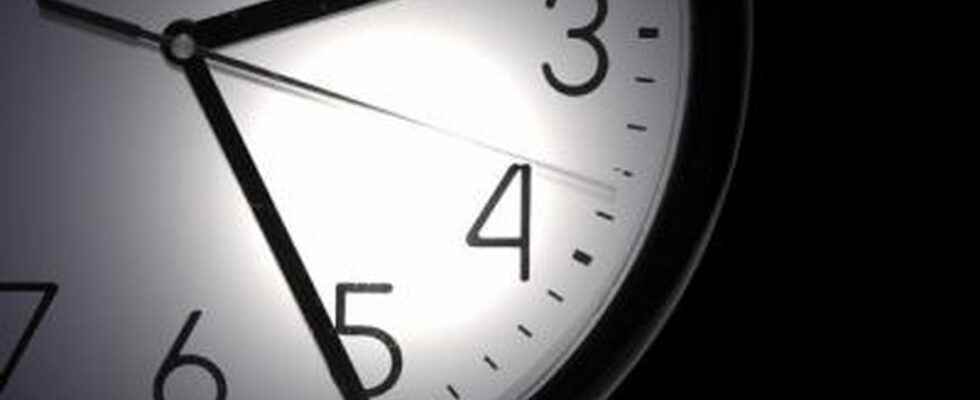As every year in October, you have to put back the hands of your clocks by one hour. At what time exactly?
It is during the night of Saturday 29 to Sunday 30 October that all French people and nationals of the European Union are invited to switch to winter time. To do this, nothing could be simpler: all you have to do is turn back the hands of your watches and clocks by one hour. Officially, it is at 3:00 a.m., Sunday morning, that the transition to summer time takes place: thus, at 3:00 a.m., it will actually be 2:00 a.m. So we all gain an hour of sleep – or something else – but lose sunshine in the evening.
The rules for changing time have been the same throughout the European Union since 1998. It is enough to remember this not to be mistaken: the transition to winter time always occurs on the last Sunday of October, where you have to set the hands of your clocks back one hour. For the transition to winter time, it is always the last Sunday of October that you have to set your watch back one hour, so you gain “one hour of sleep” according to the expression commonly used. .
Does the time change save energy?
This year, the time change takes place during the weekend of All Saints since this day of religious celebration, public holiday, falls on Tuesday, November 1st. Those who are lucky enough not to work that day will therefore have an extra day to assimilate the hour lost the day before. As every year however, the criticisms against the change of time in France will resurface: is it really useful in terms of energy consumption? Are there any health consequences?
The main advantage pointed out by the authorities in favor of the time change is the energy saving that it would allow. ADEME, the Environment and Energy Management Agency, has estimated it at 4% of lighting consumption in France. A disputed fact: the opposition to the change of time, which can be fierce, speaks of savings ten times less, the energy savings of the evening being compensated by those of the morning. In addition, by starting activity earlier in all the cities of the country, the time change would be the cause of the pollution peaks often observed in summer.
The end of the postponed time change
Questions are also being raised about the impact of the time change on health. By losing an hour of sleep in summer, don’t we risk tiring the body? This is the thesis, among other things, of an information report from the Senate on the issue. In addition to fatigue, a disturbance of the biological clock would also be caused by the change of time according to its detractors: sleep, meals, mood, concentration would be affected.
This is why the end of the time change has gained ground in recent years. The European Parliament voted in favor of abolishing the seasonal time change on March 26, 2019. All EU member states then had to coordinate on the time to be kept and the reform was to come into force in 2021 But the Covid-19 health crisis and an unfavorable opinion from the European Council went through this, postponing the question of the end of the time change. The text has not been reviewed yet.
